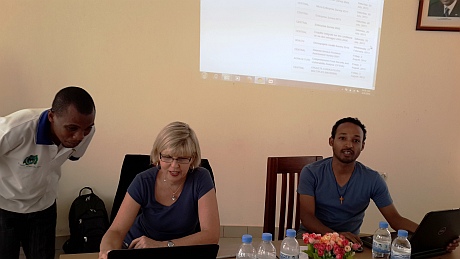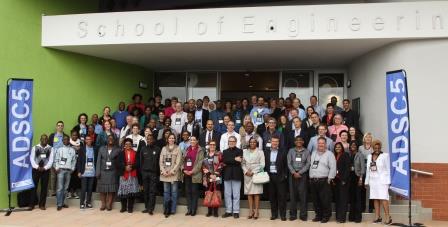By H.L. Woolfrey | May 16, 2014
Freeing African Data
Two regional developments have the potential to get African government data into the public domain. Putting their disaggregated data out there can benefit African governance through ensuring transparency and allowing feedback from policy analysis to support better government planning. The World Bank’s Central microdata catalog has been around since 2012 and continues to expand its listing of data sources. This is currently the only comprehensive online source for microdata produced by African official data producers, as a listing of country datasets is not available on most African government websites.
While the World Bank project supports improve data discovery, a second donor project aims for more Open Government Data. The Accelerated Data Program is an OECD project to make African government data more accessible. This project works to install data dissemination software with government data producers such as ministries and statistics offices. Currently data is available from statistics offices in several countries which are using this platform. These include Ghana, Kenya, Namibia, Nigeria, Rwanda, Senegal, Tanzania, and Tunisia.
The ADP also trains data managers in African National Statistics Offices. While data expertise is necessary to leverage national data resources data curation training projects are scarce in African countries. In 2013-2014 the ADP ran data management training workshops in Malawi, Mozambique, and Zambia, and ADP trainers teamed up with staff from the University of Cape Town’s Data Service to conduct data curation training workshops in Botswana, Lesotho, and Rwanda.

Another move towards Openness is the establishment of a Research Data Centre at the University of the Cape Coast in Ghana. This will make Ghanaian data more widely available to local researchers and to the wider research community. Currently Ghanaian data can be purchased from the government data producer, which may keep out researchers from poorly-resourced institutions. The University of Cape Town in South Africa and the University of Michigan in the US are working with University of Cape Coast staff to support data curation best practice at the new centre, with funding from University of Michigan’s African Social Research Initiative.
African Universities Managing their Data Assets
The University of Cape Town in South Africa has been engaged Research Data Management policymaking in 2013-2014. IASSIST member Lynn Woolfrey and a team from the University Library undertook a University data needs survey and a scoping study of policies of other universities and completed a report and draft policy document which will be built on by Stakeholders at the University to produce a university-wide policy for managing research data into the future. The policy will ensure the University is in forefront of what will become standard practice at universities in the future.
African Data Conferences
5th African Conference for Digital Scholarship and Curation was held in Durban, South Africa, in June 2013. The Conference brought together data experts from African countries under the theme of Research data in the advance of education, research, and innovation. IASSIST’s Lynn Woolfrey gave a presentation on data curation best practice at a post-conference workshop organised by South Africa’s Network of Data and Information Curation Communities (NeDiCC).

Delegates at the 5th African Conference for Digital Scholarship and Curation
The first Isibalo data users' conference was organised by Statistics South Africa at the University of Stellenbosch in Stellenbosch, South Africa, in July 2013. The Conference was an opportunity for feedback on the relevance of South African data for academia and local government decision makers and augers well for future producer-user interactions around data quality issues.
The annual eResearch Africa Conference was held in Cape Town, South Africa in October 2013. Under the banner ICT Enabling Research presenters from Australia, the UK, and African countries discussed eResearch projects and brain-stormed future e-Research strategies. IASSIST member Lynn Woolfrey presented research undertaken on data accessibility for research on Africa.

